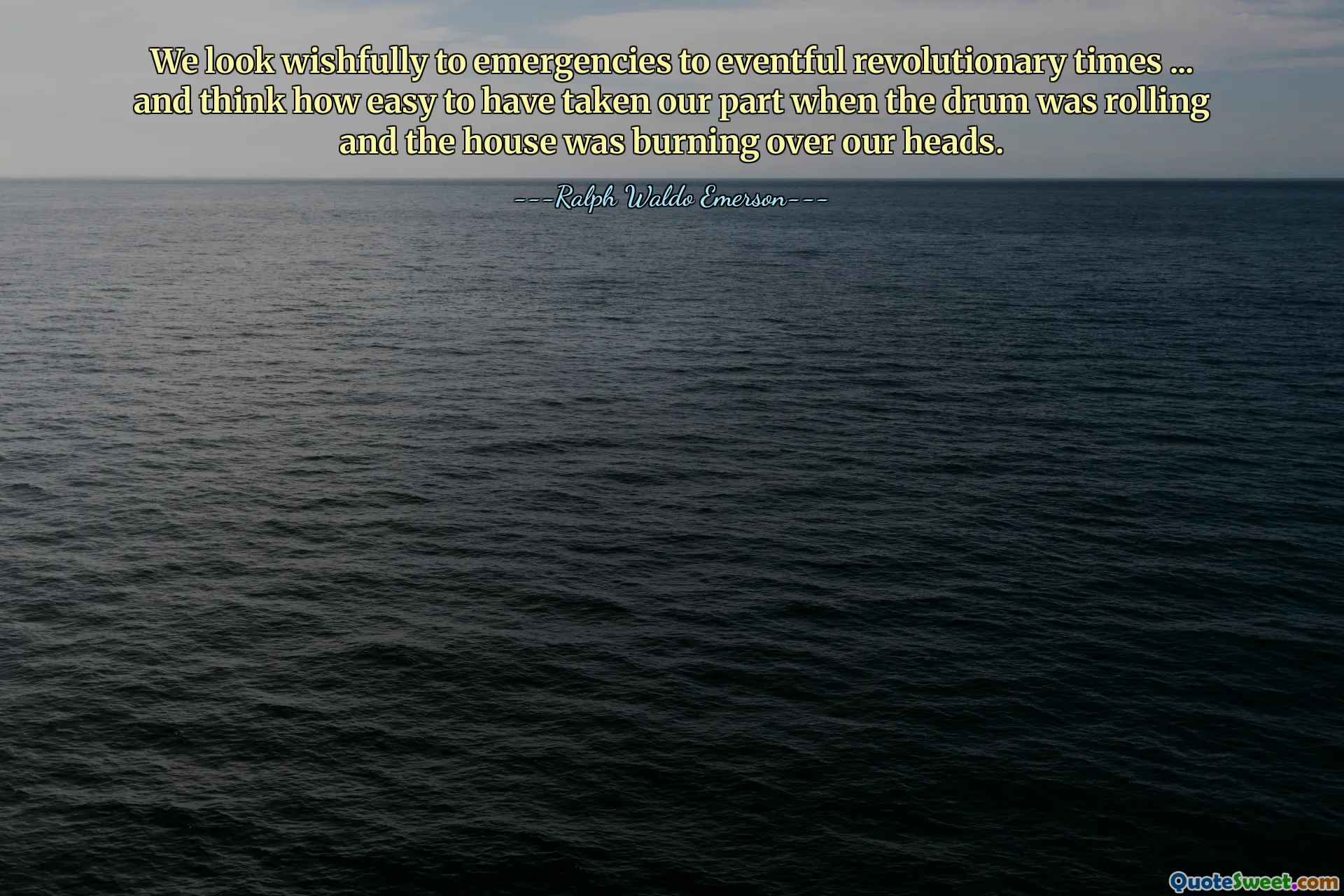
We look wishfully to emergencies to eventful revolutionary times ... and think how easy to have taken our part when the drum was rolling and the house was burning over our heads.
This quote captures a common human tendency to idealize moments of crisis and upheaval, often seeing them in a romantic or heroic light. It reflects on how, during times of peace or stability, individuals might be tempted to believe that they would have acted bravely or made significant contributions when faced with disaster or revolutionary change. However, the reality is often different. In moments of crisis, fear, uncertainty, and complacency can inhibit action, making it much easier to imagine oneself as a hero after the fact rather than while the events are occurring.
The quote prompts us to examine our true willingness to face difficult situations and to question whether we act with courage only in retrospect, when it is safer and the intensity of the moment has subsided. It suggests that noble intentions and aspirations often find their way into silence during actual upheaval, replaced by hesitation or inaction. The imagery of the "drum rolling" and the "house burning" vividly conveys the chaos and urgency of revolutionary times, yet also subtly warns against the allure of wishful thinking about participation without the accompanying risk.
Understanding this tendency can lead individuals to be more conscious of their genuine willingness to step forward in critical moments. Rather than longing for dramatic change or crisis as opportunities for glory, it encourages cultivating a steadfast resolve and readiness to act, even when the stakes are highest. Embracing this perspective fosters personal integrity and social responsibility, reminding us that true courage requires consistent effort, not just retrospective admiration.
Ultimately, the quote serves as a reminder that real involvement in tumultuous times demands more than a desire for significance; it calls for actual commitment and courage to stand firm when it counts the most.











